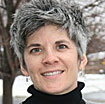Commentaries play an important role in the preacher’s exegetical work. Even so, preachers are advised not to let commentaries do their exegetical work.
What follows is an assessment of how and why work with commentaries can be appropriated effectively and faithfully for the sake of preaching. The first point addresses attitude toward commentaries. The second concerns timing. And the third pertains to types of commentaries.
At a recent gathering of the Society of Biblical Literature, the homiletics theorist, Nancy Gross, stood before a crowd of biblical scholars and daringly stated, “I tell my students to de-throne you.” To say that commentators must be de-throned clearly suggests a problem with the use of their writings.
One ineffective and, ultimately, unfaithful use is to treat commentators as royalty, to the detriment of the creativity and insight of the local preacher. At times, we preachers forget to trust that God has called us to use our gifts to interpret scripture on behalf of the congregation. One of those gifts is to engage critically and extensively the living word of God in scripture. A lack of trust in a call to in-depth exegetical work manifests itself in a quick trip to the commentaries for the “expert’s” wisdom.
Frankly, with a nod to the importance of context in preaching, and since no commentator can write for every situation, the local preacher is the expert. A more helpful attitude toward commentaries is one that does not idolize but socialize as conversation partners.
Another unfaithful and ineffective use of commentaries would be to visit them too soon in the exegetical journey. Reading commentaries before the one-on-one conversation between scripture text and preacher has been exhausted is to short-circuit the creative process.
When seeking the wisdom of commentaries is seen as one step (and a later step, at that) in the many step interpretive process, the rewards are many.
First of all, commentaries can provide affirmation. It is very satisfying to go to the writings of a well-respected biblical scholar and see that what we have discovered in our work with the text is not so “off the wall.” Also, it is gratifying to be conversant with the insights of the commentator.
Secondly, there are times when preachers simply do glean wisdom from those who have spent their lifetimes doing thorough biblical scholarship. Since it would be impossible for every preacher to be attentive to every aspect of biblical scholarship for every book of the bible, we barter tasks.
Thirdly, commentaries help preachers test their discoveries. While local preachers are the ultimate decision makers when it comes to the preaching ministry of a congregation, it is also true that preachers have agendas.
Such agendas have the potential to obstruct certain meanings of texts. Therefore, acknowledging the priesthood of all believers and the sometimes differing interpretations of Scripture among God’s people, it is vital that preachers remain open to the views of others. In other words, an effective and faithful use of commentaries requires… well, using commentaries, but at the right time.
However, even openness to the views of others is not necessarily enough to make the use of commentaries effective and faithful. One could engage only those dialogue partners who are sure to confirm one’s viewpoints. It is important for preachers to expand their list of dialogue partners to include those who will push them out of their comfort zones.
In order to help students build a library of voices unlike their own, I suggest considering five pages (139-143) from John McClure’s book, Other-wise Preaching; a Postmodern Ethic for Homiletics.
McClure provides an impressively thorough list of books which are sure to diversify any pastor’s theological library. The idea is to consult regularly with those who are “more likely to be aware of marginal readings.” Preachers are encouraged to remember that commentaries come in all forms: books, person-to-person dialog, journals, commentary series, online resources, etc. More variety can yield richer exegesis.
Engaging commentaries effectively and faithfully involves understanding them as conversation partners and not as “the final word,” consulting them later rather than sooner in the exegetical process, and broadening the number and variety of voices represented.
—

